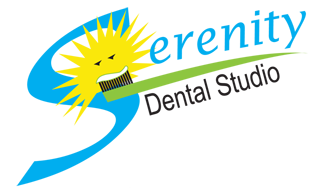
Sleep apnea is a common sleep disorder that robs a person’s ability to achieve proper rest. While a person might think he or she is sleeping for a full eight hours, he or she may actually be trapped in a cycle of breathing cessation followed by slight wakefulness hundreds of times in a night. Moreover, untreated sleep apnea can affect every facet of your life – from your oral health to your general wellbeing. Our practice offers non-invasive, non-surgical treatment for sleep apnea with oral appliance therapy.
Sleep Apnea Symptoms
One of the reasons that sleep apnea is hard to detect is because this condition occurs when a person is at rest so issues with breathing and airway obstruction are not obvious. Despite the fact that sleepers have difficulty discerning that their health issues are caused by a sleeping disorder, there are some common symptoms one can look out for during waking hours.
Typical symptoms of sleep apnea can include feeling fatigued – even after what seems like a full night of rest, waking with headaches and dry mouth, difficulty remembering things and irritability.
Causes of Sleep Apnea
Sleep apnea is caused by airway obstruction. The source of airway obstruction can be caused by developmental issues with the airway itself, excess throat and soft oral tissue, alcoholic drinks before bed and medications with sedative or depressant properties. Sometimes, patients can mitigate the occurrence and severity of apnea by losing weight and abstaining from alcoholic beverages or medications with sedating effects before bedtime. Most of the time, however, professional treatment is best. This is the most effective way to ensure that a person’s quality of sleep improves.
Airway Health and Facial Growth Development
Facial growth development can have a lot to do with airway health, including sleep apnea. Some people whose facial bones developed abnormally can develop sleep apnea – especially if their bones grow narrowly due to years of mouth breathing. Bones that grow narrowly can profoundly affect oral health. For instance, it can cause dental arches to be more narrow than they should. Narrow dental arches contribute to malocclusions and impaired oral function. Since the development of facial bones and teeth is very important to our dentist, it is imperative that children receive regular oral examinations so that our team can detect and address abnormalities as soon as possible.
Oral Appliance Therapy
Oral appliance therapy is one method for treating sleep apnea that is both comfortable and effective. A sleep apnea appliance resembles a retainer and is worn while sleeping. It will widen the diameter of the airway by pushing the lower jaw slightly forward. This increase in airway will prevent the airway obstruction that causes sleep apnea. Oral appliances are comfortable to wear and portable – unlike traditional CPAP therapy.
If you believe that you have sleep apnea, a sleep study might need to be conducted to confirm a diagnosis. After diagnoses, our team can develop a treatment plan that suits you.
Call us today at 847-519-1711 to schedule a sleep apnea consultation!
FAQs
Sleep apnea is an insidious sleep disorder that prevents a person from achieving and maintaining proper rest. This condition actually causes a person to stop breathing for short periods of time during sleep. Breathing cessation is caused by airway obstruction. After the brain registers that one is not breathing, signals will be sent to partially wake the sleeper so that proper breathing is resumed. Unfortunately, this slight wakefulness pulls a person out of deep sleep stages and disrupts one’s natural progression through each phase of sleep. Over time, the recurring disruption of a person’s sleep cycle will cause fatigue, memory loss, irritability, and mood disturbances. Research also shows a link between sleep apnea and cardiovascular health.
Since sleep apnea affects your ability to rest properly, this condition can affect many aspects of your life. Sleep apnea causes sleep deprivation. Those deprived of sleep for long periods will feel persistent malaise, develop mood disturbances such as irritability and depression, and experience memory loss. On top of never feeling rested, sleep apnea can lower one’s oxygen levels and raise blood pressure. Research has also shown a link between the presence of untreated sleep apnea and the development of issues with the cardiovascular and pulmonary systems.
Facial growth development refers to how our facial bones grow during adolescence. Everything from our jawbones to cheekbones takes years to develop. It is important to monitor facial growth and address potential developmental issues as early as possible to prevent issues with airway obstruction, narrow dental arches, and malocclusions.
There are a few different options for treating sleep apnea. Some patients may need surgical intervention to correct congenital and developmental abnormalities that affect airway health while others may use CPAP machines. Our practice offers a non-surgical and comfortable treatment option by prescribing custom oral appliances. Oral appliance therapy involves wearing a custom made mouthpiece at night. This appliance looks somewhat like a retainer but it functions differently. A sleep apnea oral appliance will push the lower mandible forward to widen the airway during rest. A wider airway means that episodes of apnea can be prevented.
